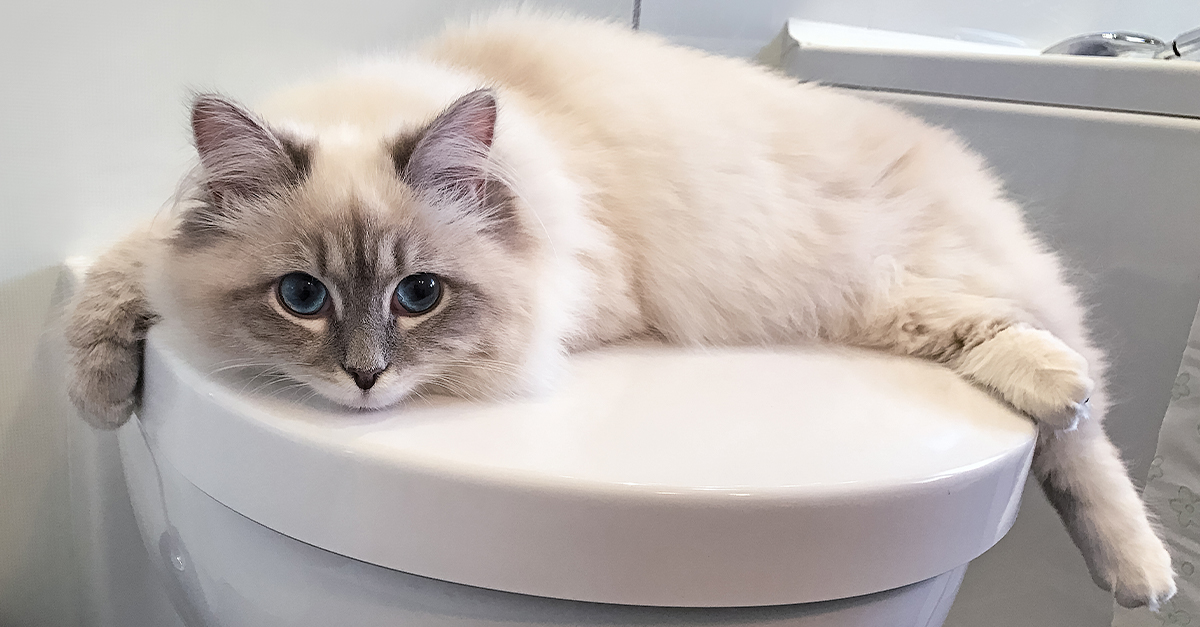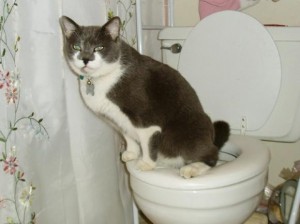Avoid Plumbing Problems: Don't Flush Cat Poop Down Your Toilet - Professional Advice
Avoid Plumbing Problems: Don't Flush Cat Poop Down Your Toilet - Professional Advice
Blog Article
We've noticed this great article about Can You Flush Cat Poop Down The Toilet? listed below on the web and decided it made perfect sense to write about it with you on this site.

Introduction
As feline proprietors, it's essential to be mindful of exactly how we throw away our feline close friends' waste. While it might appear convenient to flush pet cat poop down the toilet, this practice can have destructive repercussions for both the environment and human wellness.
Ecological Impact
Flushing feline poop introduces harmful microorganisms and bloodsuckers into the water system, posing a substantial risk to water ecological communities. These contaminants can negatively affect marine life and concession water quality.
Health and wellness Risks
Along with ecological concerns, flushing feline waste can additionally posture health threats to humans. Cat feces might include Toxoplasma gondii, a bloodsucker that can cause toxoplasmosis-- a possibly severe disease, particularly for expecting females and people with weakened immune systems.
Alternatives to Flushing
The good news is, there are safer and much more accountable ways to get rid of cat poop. Consider the adhering to choices:
1. Scoop and Dispose in Trash
One of the most usual method of taking care of cat poop is to scoop it right into a naturally degradable bag and toss it in the trash. Make sure to make use of a specialized clutter inside story and take care of the waste without delay.
2. Usage Biodegradable Litter
Choose eco-friendly feline litter made from materials such as corn or wheat. These trashes are environmentally friendly and can be safely thrown away in the trash.
3. Bury in the Yard
If you have a lawn, think about burying feline waste in a designated area far from veggie gardens and water resources. Be sure to dig deep adequate to stop contamination of groundwater.
4. Install a Pet Waste Disposal System
Invest in a family pet garbage disposal system specifically made for feline waste. These systems make use of enzymes to break down the waste, minimizing odor and environmental effect.
Verdict
Responsible family pet ownership extends past offering food and sanctuary-- it additionally involves appropriate waste administration. By refraining from flushing pet cat poop down the commode and going with alternative disposal methods, we can decrease our environmental impact and protect human health.
Why You Should Never Flush Cat Poop Down the Toilet
A rose by any other name might smell as sweet, but not all poop is created equal. Toilets, and our sewage systems, are designed for human excrement, not animal waste. It might seem like it couldn’t hurt to toss cat feces into the loo, but it’s not a good idea to flush cat poop in the toilet.
First and foremost, assuming your cat uses a litter box, any waste is going to have litter on it. And even the smallest amount of litter can wreak havoc on plumbing.
Over time, small amounts build up, filling up your septic system. Most litter sold today is clumping; it is made from a type of clay that hardens when it gets wet. Ever tried to scrape old clumps from the bottom of a litter box? You know just how cement-hard it can get!
Now imagine just a small clump of that stuck in your pipes. A simple de-clogger like Drano isn’t going to cut it. And that means it’s going to cost you big time to fix it.
Parasitic Contamination
Believe it or not, your healthy kitty may be harboring a nasty parasite. Only cats excrete Toxoplasma in their feces. Yet it rarely causes serious health issues in the cats that are infected. Most people will be fine too if infected. Only pregnant women and people with compromised immune systems are at risk. (If you’ve ever heard how women who are expecting are excused from litter cleaning duty, Toxoplasma is why.)
But other animals may have a problem if infected with the parasite. And human water treatment systems aren’t designed to handle it. As a result, the systems don’t remove the parasite before discharging wastewater into local waterways. Fish, shellfish, and other marine life — otters in particular — are susceptible to toxoplasma. If exposed, most will end up with brain damage and many will die.
Depending on the species of fish, they may end up on someone’s fish hook and, ultimately on someone’s dinner plate. If that someone has a chronic illness, they’re at risk.
Skip the Toilet Training
We know there are folks out there who like to toilet train their cats. And we give them props, it takes a lot of work. But thanks to the toxoplasma, it’s not a good idea.

I hope you liked our article about How to Dispose of Cat Poop and Litter Without Plastic Bags. Thanks for spending some time to read our piece. Those who liked our blog post plz remember to pass it around. Thanks a lot for your time. Please stop by our blog back soon.
Call Today Report this page